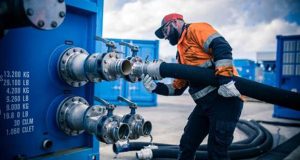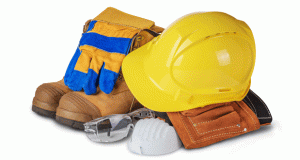 Richard Jenkins, Chief Executive of the National Security Inspectorate (NSI) with news of the new ‘MOT’ approval scheme for commercial kitchen fire protection systems
Richard Jenkins, Chief Executive of the National Security Inspectorate (NSI) with news of the new ‘MOT’ approval scheme for commercial kitchen fire protection systems
As a facilities manager, you may be responsible for food preparation and a commercial kitchen within your core on-site facilities. Kitchens are notoriously high risk environments for accidents and incidents. Fire industry and insurance data reported by BAFE – the UK’s independent register of quality fire safety service providers – reveals kitchen fires are statistically the third most likely cause of large fires behind hot works and arson. Safety aspects for staff and visitors, and the protection of property are therefore key concerns that the responsible person neglects at their peril.
In the last year the media has reported several large fires in commercial buildings posing risk to people, property and responding fire fighters, bringing the responsibilities of operators of all properties and particularly those with higher risk facilities, such as commercial kitchens, into sharp focus. Kitchen fire protection systems can help contain, if not extinguish such fires.
IMPROVING SAFETY
The MOT test first introduced in 1960 under the direction of the then Minister of Transport, Ernest Marples, was initially greeted with some horror at the implied expense involved. Yet 60 years on the MOT has long fallen into every day parlance as an accepted necessity and its success in increasing safety on our roads is unquestioned. Why, one might ask, has the same idea not been applied to fire safety in buildings?
Now BAFE has put down the challenge to us all, that in the case of commercial kitchen fire protection systems the MOT concept has another life, and indeed could save even more lives.
COMMERCIAL KITCHEN FIRE PROTECTION SYSTEMS
Mitigating risk by installing and suitably maintaining a kitchen fire protection system is recommended by fire and rescue services across the UK. These systems protect premises by automatically activating when a fire is detected, helping to prevent the spread of fire to other parts of the building. Legislative responsibilities demand competent companies design, install, commission and maintain all fire safety equipment – including kitchen fire protection systems.
 Professionally approved fire safety providers now have authority to issue operators of buildings that house commercial kitchens with NSI/BAFE Certificates of Compliance much like the well-recognised and accepted ‘MOT’, as evidence their kitchen fire protection system is fit for purpose at initial installation and correctly maintained.
Professionally approved fire safety providers now have authority to issue operators of buildings that house commercial kitchens with NSI/BAFE Certificates of Compliance much like the well-recognised and accepted ‘MOT’, as evidence their kitchen fire protection system is fit for purpose at initial installation and correctly maintained.
The Kitchen Fire Protection Systems Scheme developed by BAFE in response to the fire risks posed is delivered by way of granting Approvals to professional installers regularly audited by NSI expert auditors. NSI third party certification provides assurance regarding the quality of service and product provided by these providers.
BAFE and NSI recommend those responsible obtain confirmation their provider is authorised to issue an NSI/BAFE Certificate of Compliance for any installation as evidence of their competence in maintenance and assessment of ongoing suitability of equipment installed, including when kitchen renovations impact use.
THE CUSTOMER PERSPECTIVE
How can the “Responsible Person” or “Duty Holder” be confident that installation and maintenance is indeed in line with relevant standards and demonstrate they are fulfilling their rightful duty?
The answer in large part can be addressed by the duty holder being sensitive to the competence of fire safety contractors who ideally are third party certificated, that is, hold a Certificate of Approval, for each of the services they provide. It is unwise to assume a contractor competent to install and maintain fire extinguishers is equally competent in the maintenance of a fire detection system, or a kitchen fire protection system.
Using BAFE registered Fire Safety organisations, it is now possible to ensure that kitchen fire protection systems are installed and ‘MOT’’ed – and obtain an NSI/BAFE ‘MOT’ Certificate of Compliance from the approved installer. The Certificate of Compliance issued upon completion, will give facilities managers, insurance companies and other interested parties confidence that work on the specific installation has been undertaken in a competent manner.
TOGETHER RAISING STANDARDS
The new NSI/BAFE approval scheme, requires on-going regular audit of contractors – continued monitoring with regard to engineer training, competency in practice, installation design integrity, review of system suitability as kitchen layouts are adapted over time and maintenance of installed systems.
NSI provides the independent audit of approved installers including their maintenance schedules and system installations for both newly installed and maintained systems.
It should be noted that the new NSI/BAFE scheme for commercial kitchen fire protection systems has the broad support of insurers. They are convinced fire risk to people and property will be reduced as the scheme becomes more widely adopted. Check the terms of your policy with your insurer at installation.
NSI approved companies for Kitchen Fire Protection Systems can be found by searching the ‘Find A Company’ directory on the NSI website: www.nsi.org.uk.




